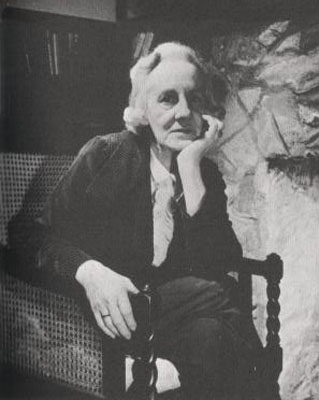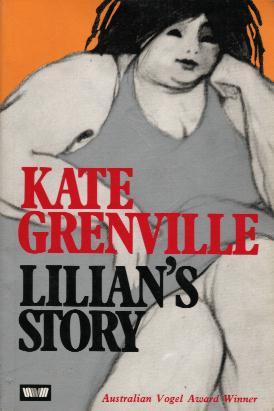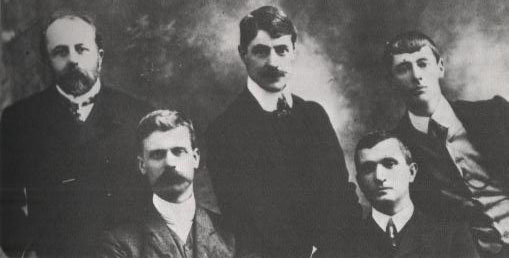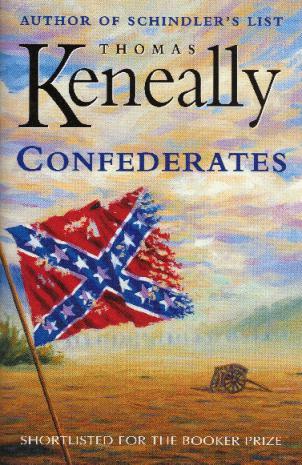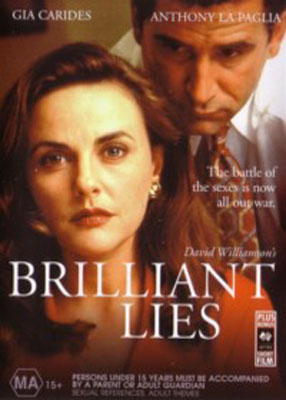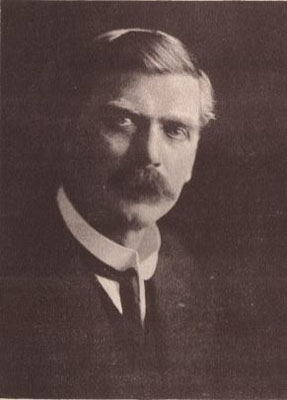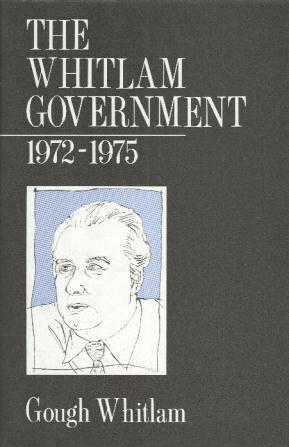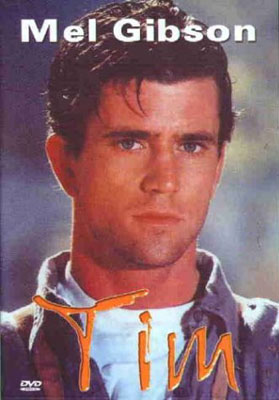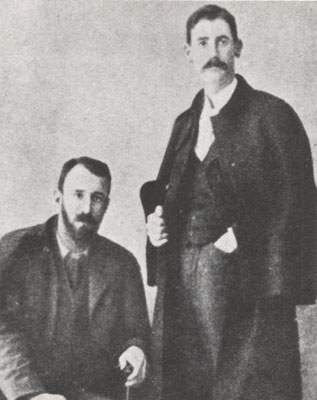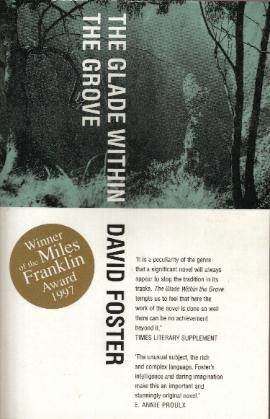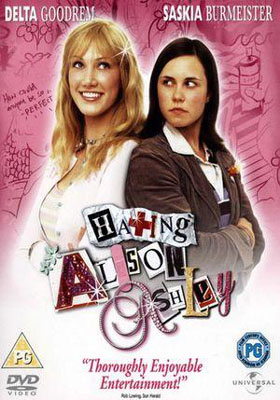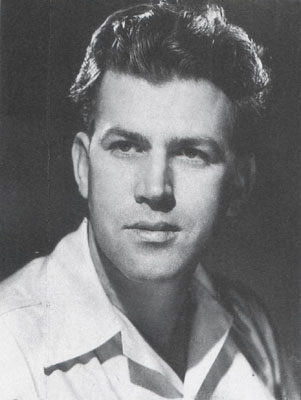The Age
Gabrielle Carey is best known as the other half of the writing duo responsible for Puberty Blues, the 1979 coming-of-age novel she wrote with Kathy Lette. Now Carey has written a memoir, So Many Selves which is reviewed by Marieke Hardy. Needless to say there is a fair bit about her erstwhile writing partner in the first of three essays in the collection: "Certainly Carey accepts she was ill-prepared for the infamy that followed Puberty Blues's publication and withdrew into a world of intellectual snobbery and ponderous overthinking. But Lette was a dirty loudmouthed slagbag whose hunger for celebrity inevitably drove them apart. Or something like that, anyway; it's hard to read between the lines of the rather vitriolic and one-sided recollections." The other two essays deal "with Carey's somewhat mystifying foray into spirituality and her years immersed in a Third-World love story with the father of her child." In the end, Hardy is not overly impressed: "Possibly a phone call inviting Lette out for a beer and a hug might've served her better in the long term - at the very least it may have balanced Carey's memoirs into something a little more real."
I read Emily Maguire's first novel, Taming the Beast, last year and found it over-the-top, probably in need of a good editing. Others didn't agree and she was nominated for several awards and praised by one American litblogger. Now her second novel, The Gospel According to Luke, has been published and Marian McCarthy finds it more competent than compelling: "It is an interesting novel, with compelling ideas, and Maguire is without question a talented writer. It is therefore frustrating that the book's execution is more competent than thrilling, and one can't help but wish she had spent longer distilling her thoughts." The book has a lot going for it as it "has many intriguing themes: the struggle of love versus organised belief; faith versus science; and body versus mind. It examines the gulf between practical and religious morality and asks whether it is possible to forge a relationship if you have to sacrifice your essence to do so. And if one does make this choice, then what kind of relationship will it be? Who do you become? And what gives your life meaning?" All interesting concepts, it's the execution that's the thing. "Maguire is an exciting writer with a wonderful, confrontational style, and is clearly someone to watch. I shall look forward to her next novel immensely. I do hope she takes her time."
Matthew Ricketson reviews the book of the moment, Jonestown: The Power and the Myth of Alan Jones by Chris Masters. He makes a good point in comparing with the recent biography of Shane Warne by Paul Barry, "where, in the end, Barry tells us little new about Warne, Masters unveils a richly detailed and surprisingly rounded portrait of Jones. Jonestown is Sydney, and Alan Jones' broadcasting success and much-feared power appear to be a peculiarly Sydney phenomenon." And he also considers Masters's initial motives to be sound: "Masters may want to understand Jones but that does not mean he agrees with what he does. Far from it. The aim of Jonestown is to take Jones seriously as a person and as a broadcaster, so as to begin a serious debate about the nexus between politics and the media in Australia."
Short notices are given to: Quarterly Essay 23. The History Question: Who Owns the Past? by Inga Clendinnen: "The past is a magic pudding that belongs to everyone, from politicians in search of icons to novelists looking for ready-made plots, says Inga Clendinnen"; Any Guru Will Do: A Modern Man's Search for Meaning by Phil Brown who "is a natural at mining his neuroses and bodily afflictions for rueful humour that reflects the obsessions of his time"; The Little History of Australian Unionism by Sean Scalmer: "Compact and accessible, this is a lively and informative tribute to collective power"; The Fight by Martin Flanagan and Tom Uren, which is built like a mosaic from memories, reflections, discussions and fragments that show, as very few biographies ever do, how individuals are the sum of their relationships with other people"; The Curer of Souls by Lindsay Simpson is "meticulously researched historical fiction, based on extensive readings of colonial diaries and other sources"; Making Noises by Euan Mitchell, who "knows his rock 'n' roll - he played in a pub band himself - and this laid-back ironic take on the Australian music industry in the '90s captures the spirit of the time. It's fast-paced and grungy, full of backroom intrigue and colorful characters"; Acting on Conscience by Frank Brennan: "In these toughtful essays, Jesuit priest, human rights lawyer and academic Frank Brennan considers religion's place in public affairs in a country where church and state are separate"; Imprints of Generations by Robert Ingpen: "This handsome hardback is a plea not only 'to maintain a constant watch over what we know we have' but also to preserve it for future generations"; San Sombrero by Santo Gilauro, Tom Gleisner and Rob Sitch: "The Jetlag Travel Guides work on multiple levels: parodying the genre, satirising various species of ttaveller and indulging in general jokiness and wordplay", Murder in the Dark by Kerry Greenwood is "the 16th book in the Kerry Greenwood Phyrne Fisher mystery series and the world's a better place for it."
The Australian
Ross Fitzgerald's review of Jonestown by Chris Masters leads off reviews here, and Fitzgerald considers the book a massacre: "Chris Masters has a fine CV, especially in the field of television documentaries. What a shame, then, that he has written such a mean-spirited and quite unbalanced biographical expose of Sydney-based broadcaster Alan Jones." It goes on, laying into Masters on all sides calling him "intemperate in his analysis", and some of his comments "mischievous and quite absurd". If you are looking for the other side of the review fence, then this is it.
Gabrielle Carey's memoir So Many Selves is reviewed in somewhat different light (to Marieke Hardy's above) by Jean Bedford. "Placed together as they are in So Many Selves, these essays describe the arc of a life begun in precocious confusion and fame, and continued in a serious search for enlightenment and purpose. But it's the exuberance of the first essay, both in subject and writing, that dominates."
Short notices are given to: Running Amok: When News Deadlines, Family and Foreign Affairs Collide by Mark Bowling, who spent 4 years in Indonesia from 1998 as ABC correspondent, and who is "brutally honest"; The Great Mistakes of Australian History edited by Martin Crotty and David Andrew Roberts: "The denial of Aboriginal rights, the misuse of rural land, wartime internment of enemy aliens: many issues of the past still resonate"; Between the Flags: One Hundred Summers of Australian Surf Lifesaving edited by Ed Jaggard: "The lively critical text is supported by 150 archival images and paintings."
